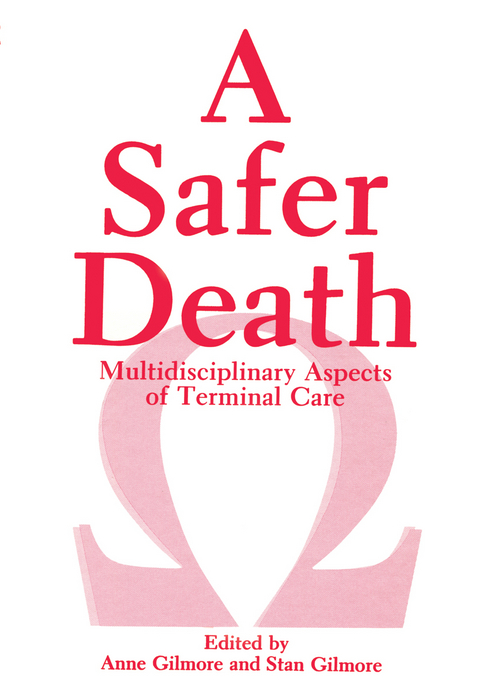
A Safer Death
Springer-Verlag New York Inc.
978-1-4615-8361-5 (ISBN)
During the past two decades professional interest in Terminal Care has increased dramatically. It is always difficult to trace the origins of a change of emphasis in medical and nursing care but it is likely that three influences have contributed to bring this about. Firstly, the rise of the modern hospice movement with its recognition that dying and mourning are normal life events and that the lay person has a role in these events no less important than the health professional; secondly, the development of sophisticated and successful techniques of palliative care and pain control; and lastly, the increasing expectations of the populace in advanced countries for a comprehensive and sensitive service for patients, family and care givers at the terminal phase of illness. It is significant that these developments in the care and management of the terminally ill are not confined either to one country or the sole prerogative of a single discipline. This is reflected in the papers collected in this volume which were originally presented at the International Conference on Multidisciplinary Aspects of Terminal Care organised by The Prince and Princess of Wales Hospice in Glasgow, Scotland, U.K. The cross-fertilisation of ideas, experiences, and assessments provided by the contributors in a multicultural and multidisciplinary context pre sented in this volume will be found stimulating and inspirational for both the professional and the lay person in the care of the dying.
One — Problems of Death and Dying.- “Safe Death” in the Postmodern World.- The Inner Web.- Terminal Care: from a Sociological Perspective.- The Problems of Death and Dying from a Psychoanalytic Perspective.- The Anxiety of the Unknown — Dying in a Psycho-Existential Perspective.- Four Frames of Death in Modern Hospital.- Various Environments Surrounding Death Among the Japanese Elderly.- The Nest-Egg and the Funeral — Fear of Death on the Parish Among the Elderly.- Terminal Care in Children.- Terminal Care in the Old.- Risk Factors with Mortality Among the Elderly Bereaved.- Ethical Implications of Use of the Living Will in Care of the Terminally Ill.- Two — Varieties of Caring Responses.- Pain Treatment and Terminal Care in Finnish Hospitals.- Special Equipment for the Severely Disabled.- Setting Up A District Health Authority Terminal Care Support Team.- A Creative Response to Multiple Losses.- Jusqu’a la Mort, Accompagner la Vie.- Self Help and the Role of Psychosocial Support and Therapy.- Short-Term Psychotherapy and Crisis Intervention in Bereavement.- A Family and A Team — Nurses’ Roles in In-Patient Terminal Care.- Bereavement Support — The Relationship Between Professionals and Volunteers.- The Development of a Program to Assist Schoolage Children in Coping with the Death of a Classmate.- Three — Evaluation.- Battle Fatigue in Hospice/Palliative Care.- Terminal Care of the Child with Cancer: An Analysis of Parent/Child Attitudes.- Evaluation of the Use of Terminal Care Services in an Inner City District.- The Effectiveness of a Psychological Training Designed for Health Care Professionals Dealing with Terminal Cancer Patients.- Health Services Used by Cancer Patients During the Terminal Three Months.- Physician’s Attitudes in theManagement of Terminally Ill Patients.- A Comparison of Four Outcome Measures of Terminal Care.- Contributors.
| Zusatzinfo | VIII, 220 p. |
|---|---|
| Verlagsort | New York, NY |
| Sprache | englisch |
| Maße | 170 x 244 mm |
| Themenwelt | Sachbuch/Ratgeber ► Gesundheit / Leben / Psychologie |
| Studium ► Querschnittsbereiche ► Prävention / Gesundheitsförderung | |
| ISBN-10 | 1-4615-8361-6 / 1461583616 |
| ISBN-13 | 978-1-4615-8361-5 / 9781461583615 |
| Zustand | Neuware |
| Haben Sie eine Frage zum Produkt? |
aus dem Bereich


